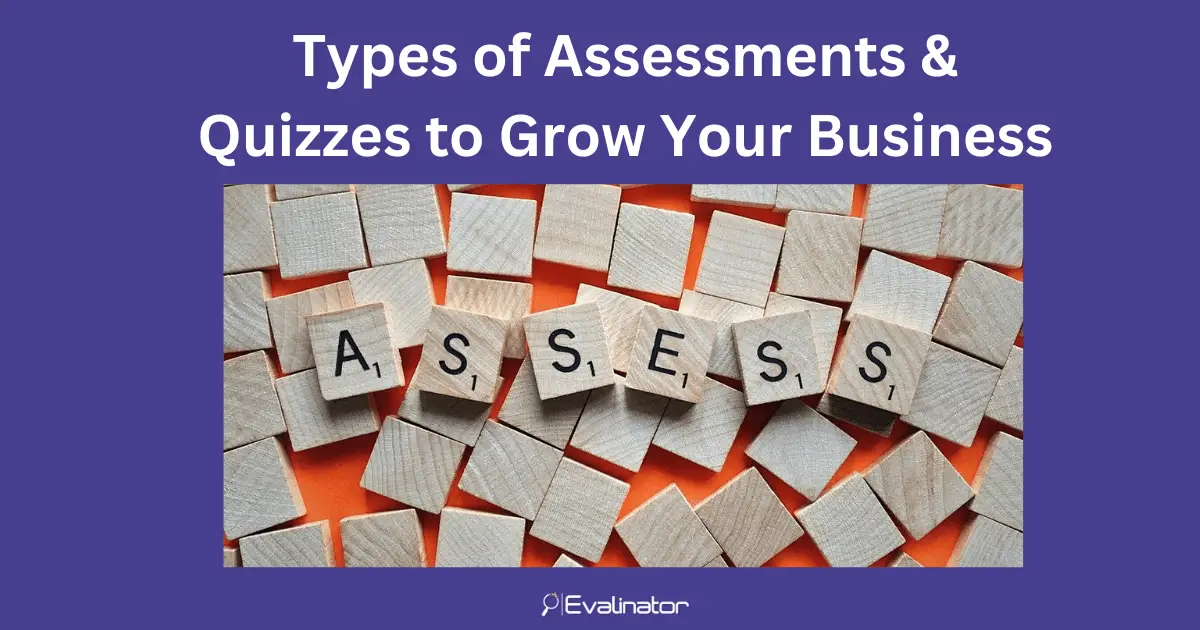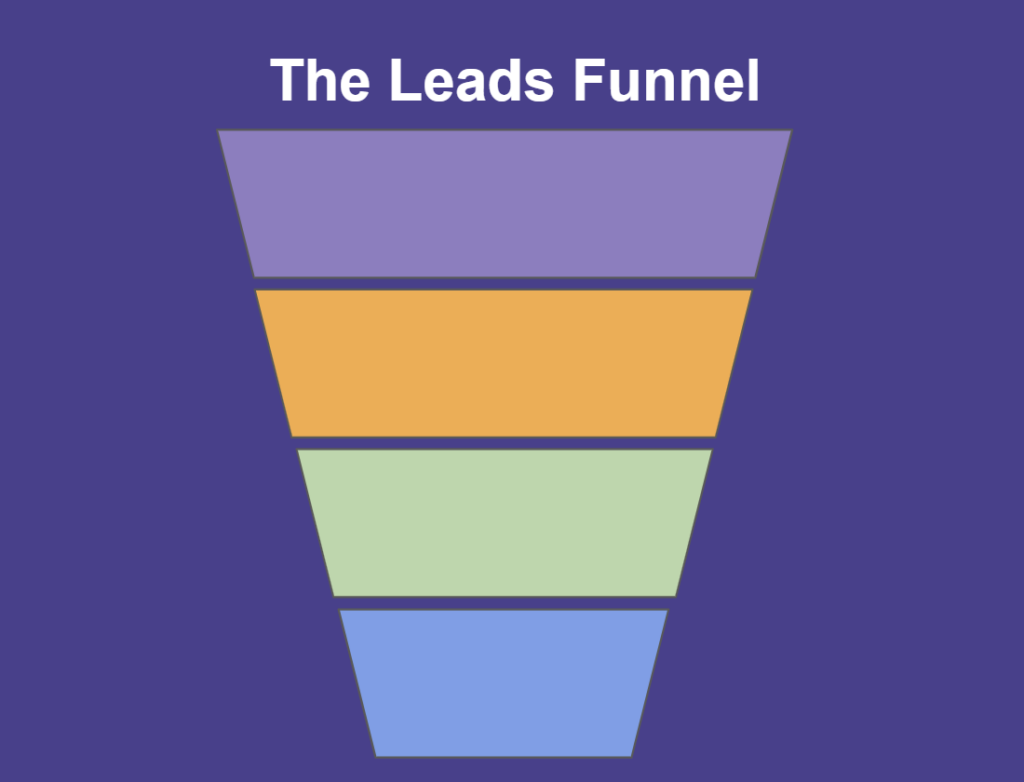


Interactive assessments or quizzes can can be used to start a conversation with clients, build trust, and help them achieve their goals. As a result, they are excellent tools for growing your business.
Here is a quick summary of the 4 basic types of interactive assessments and engaging quizzes.
Let’s quickly get this out of the way.
Interactive assessments or quizzes make your customer engagement dynamic in several ways.
So, interactive assessments and quizzes, especially on Evalinator, help you with initial interactions, and also with creating long lasting client relationships.

An interactive assessment is great for experts – coaches, consultants and agencies. That’s because it helps you rise above the sea of content marketing madness, get your expertise out there, and really engage with your prospects and clients one on one.
Interactive assessments increase your lead generation pipeline while also allowing you to work with your clients in a personalized manner.
They also help with better conversion from prospect to customers because you start building trust with your prospects as you help them.
This is the most well known type of assessment. Respondents will answer a series of questions and will receive a total score.
Based on that total score, they will be mapped to a rating scale.
For example, in this social selling skills assessment, those scoring between 70 to 100 points are ranked a “Social Winner”, those between 40-70 are ranked “Social Experts”, and those below 40 points may be ranked as a “Social Upstart”.
The coach or consultant can now help each respondent improve upon their current status through goal setting.
In this chart below, you can also see that most people scored in the middle category, but a surprisingly large percentage of respondents are actually doing pretty well!
Benchmarking:
The assessment will also show users how they compare to others in the form of a bar chart or radar chart. It is meant as a guide to examine their performance vis-a-vis your peers. For example, it might show aspiring authors how they compare to other aspiring authors in the key areas of assessment (e.g. 60% of other authors also had trouble maintaining a social media publishing schedule).
This is a special type of a quiz that focuses on self introspection. These type of assessments are also great for lead generation because they introduce a high level of personal curiosity.
For example: What’s your leadership style? What kind of social work may suit you best? What’s your learning style?
Here’s an example measuring sales personality types.
People can’t change what they are, but as a coach or consultant, you can help them better achieve their goals based on this assessment.
Moreover, with Evalinator, you can set it up so this assessment to show you how many others matched a respondent’s personality type.
For example, 75% of other sales persons in your sector also rated being consultative.
This is a a powerful assessment type that gives a birds eye view of many different aspects at once.
Life, Business, or career coaches may use this as they help their clients balance multiple aspects of their life.
The assessment is intended to measure a simple metric: How satisfied are you with …?
The results will simply show how satisfied respondents are with the topics in the wheel.
In this example, the coach may observe that both family and career are an area of concern, while social relationships are not. This then sets the stage for the next step of the coaching to help their clients take action to help clients with achieving better balance.
For this reason, this assessment is also called a “coaching wheel”.
Of course, a wheel can be tailored for almost any area that can be broken down into sub-areas. It can be used for business, life, family, health, culture, and so on. Here are some other examples.
This is a special feature for most assessments that Evalinator provides.
Sometimes, a simple question based quiz or assessment does not work if you want to group the results into dimensions or categories.
For example, if you have a Wheel of Life, then you may want to ask multiple questions within the “family” category.
This allows you to go a little deeper into the topic with your clients.
So if you would like to drill down into the areas of your assessment, you would create them as dimensions, and map one or more questions to these dimensions.
As your customers rate themselves on the questions, their scores are automatically scored and displayed according to these dimensions! See an example here.
Note: Type of charts and visual displays can be changed as needed. e.g., you can also show the below as a bar chart.
For example, a marketing coach might have multiple topics within Digital Marketing. These could be categories such as SEO, sales enablement, content production, account based marketing etc.
A multi-dimensional assessment will let the coach or consultant bring all these topics under one overall assessment. That way clients can see their scores on each such dimension with one “overall score” as well.
As with almost everything, one size doesn’t fit all. Fortunately, Evalinator allows you to create different types of interactive assessments and quizzes.
Experts will also often create 2 different types of assessments on the same topic to meet their needs better.
For example:
However, the above are just generalizations. A personality or type assessment may be the only type of assessment you need depending on your specialty.
Whichever interactive assessment you chose, we’re here to help you on your journey.
Evalinator offers a 2 week trial and personalized support.
View our plans, and please sign up. We are here to help.
Good luck!

Feeling frustrated with lead generation?
Take this free, 5-minute quiz and get more prospects into your leads funnel.
Instant Results. Actionable recommendations. Email required.
Find Your Score >>